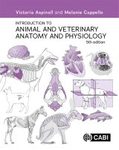About this book
This book is a comprehensive presentation of health and diseases in reindeer and caribou, or just Rangifer, a key Circumarctic species with broad social and ecological value. It is an essential reference for anyone interested in the biology and health of wild or semi-domesticated reindeer and caribou and is more broadly relevant for those with interests in other species of free-ranging and captive cervids. Beginning with a general introduction to Rangifer as a species, it then focuses on Rangifer "health" as a concept and describes the determinants of health at an individual and population level. Chapters cover a range of topics from nutrition and feeding to stress, non-infectious and infectious diseases, meat hygiene, capture and restraint, diagnosis and treatment of health issues, and finally, potential impacts of climate change on the health of Rangifer.
Reindeer and Caribou: Health and Disease compiles extensive research and experience-based information on issues ranging from drug doses for chemical immobilization, blood chemistry values, and raising an orphaned calf. In addition, it contains hundreds of high-quality colour illustrations that contribute to its value as a diagnostic resource for recognizing various parasites, pathogens and signs of disease, both in live and dead animals. Each chapter is followed by a comprehensive list of references and a list of contact information for all the contributors, identifying world experts in the different areas of health for this circumpolar and fascinating species. This book is compulsory reading and an indispensable resource for anyone dealing with health in reindeer and caribou, including veterinarians, wildlife biologists and managers, reindeer herders/game ranchers, zoological husbandry personnel, and students with wildlife health.
Contents
- Preface
- Introduction
- Reindeer Health - a Holistic Perspective
- Nutrition and Feeding
- Malformations and Non-Infectious Diseases
- Infectious Diseases
- Rangifer Health and Disease Ecology
- Meat Quality and Meat Hygiene
- Dealing with Reindeer and Disease
- Reindeer in Parks and Zoos
- Restraint and Immobilization
- The Role of Predators
- Climate Change in the Arctic
- List of Illustrations
- Further Reading and Internet Resources
- Subject Index
Customer Reviews
Biography
Dr. Morten Tryland is a professor in veterinary medicine–infection biology. He works in the Arctic Infection Biology research group at UiT– Arctic University of Norway, and also holds a professor-II position at Norwegian Polar Institute (NPI), both institutions located in Tromsø, Norway. After a period of clinical veterinary practice, he transitioned to research and virology and pathogenesis studies in wildlife and semi-domesticated reindeer. He has been a member of Norwegian Scientific Committee for Food Safety (VKM; Panel of biological hazards, 2007-2016), and European Food Safety Authority (EFSA; Panel of biological hazards, 2016-2017), and he is currently the Norwegian editor of the scientific journal Acta Veterinaria Scandinavica. Dr. Tryland has spent most of his research career investigating infectious diseases and zoonoses in arctic wildlife and semi-domesticated reindeer, in close cooperation with Fennoscandian reindeer herders and research groups. He has lead or participated in projects in Alaska, Canada, Iceland and Fennoscandia, including the Svalbard archipelago, and has spent a sabbatical period at the University of Fairbanks, Alaska, USA. His research is focused on how pathogens impact man and wildlife, individuals and populations, of the vulnerable and changing northern ecosystems.
Dr. Susan Kutz is a Professor in the Department of Ecosystem and Public Health at the University of Calgary Faculty of Veterinary Medicine, Alberta, Canada. She has devoted over two decades of her life to wildlife health research in the Arctic and Subarctic. Her areas of expertise include wildlife parasitology, disease ecology, ecosystem health, arctic ecology, climate change and community-based wildlife health surveillance, with a focus on caribou and muskoxen. She is a member of the CircumArctic Rangifer Monitoring and Assessment Network and led the development and implementation of Rangifer health monitoring protocols during International Polar Year. She initiated and maintains the Rangifer Anatomy Website (2011), an interactive website providing general and detailed information on caribou and reindeer anatomy, caribou hunting and caribou sampling, and co-produced the Hunter Caribou Training Video (2009), a 52-minute community-engaged training video containing four "chapters" on caribou health sampling, caribou disease and youth engagement. Working with local communities, Dr. Kutz has done extensive research on the impacts of a warming Arctic on the health of declining muskox and caribou populations and the consequent effects on food security in the Arctic.




































